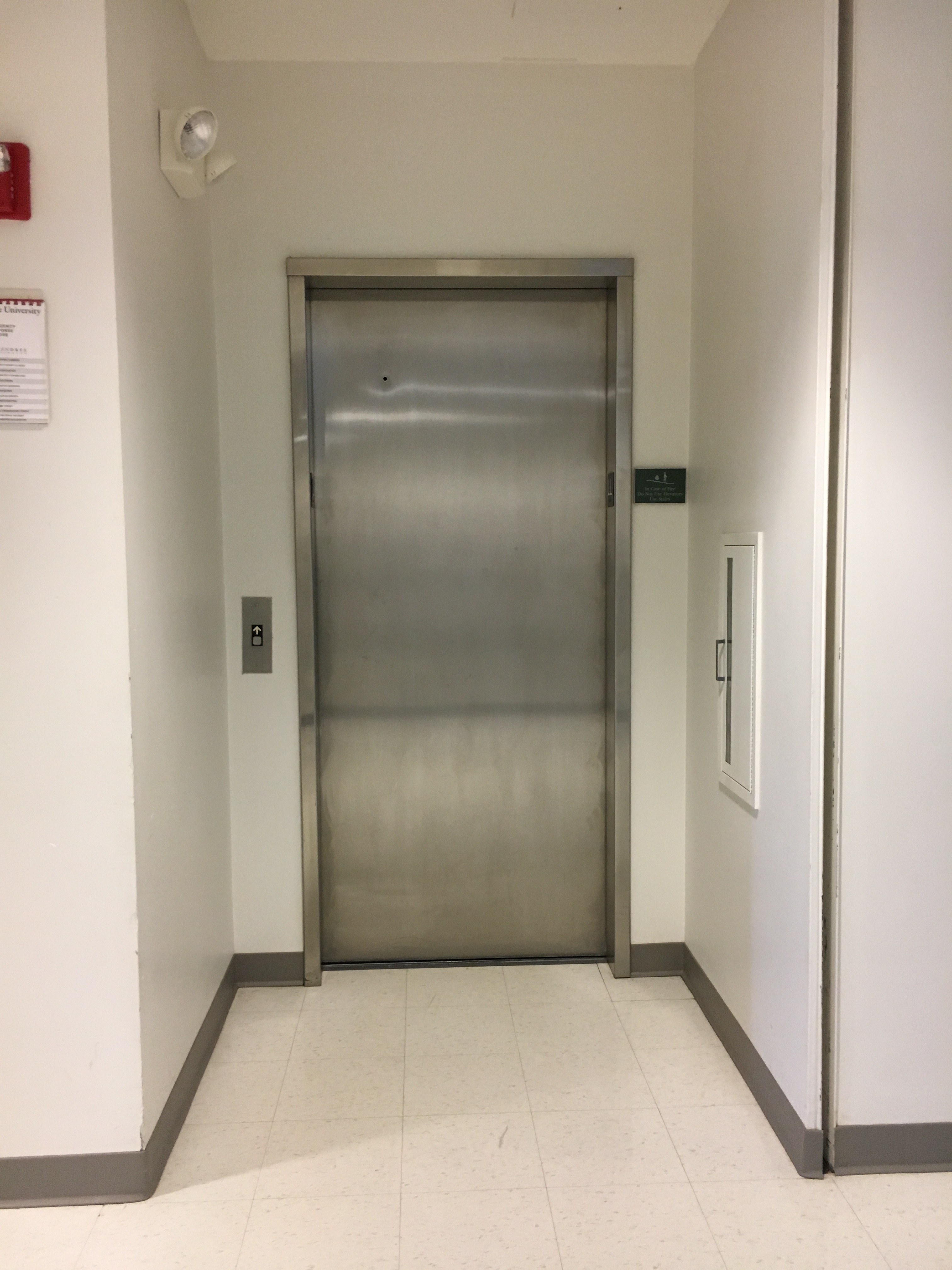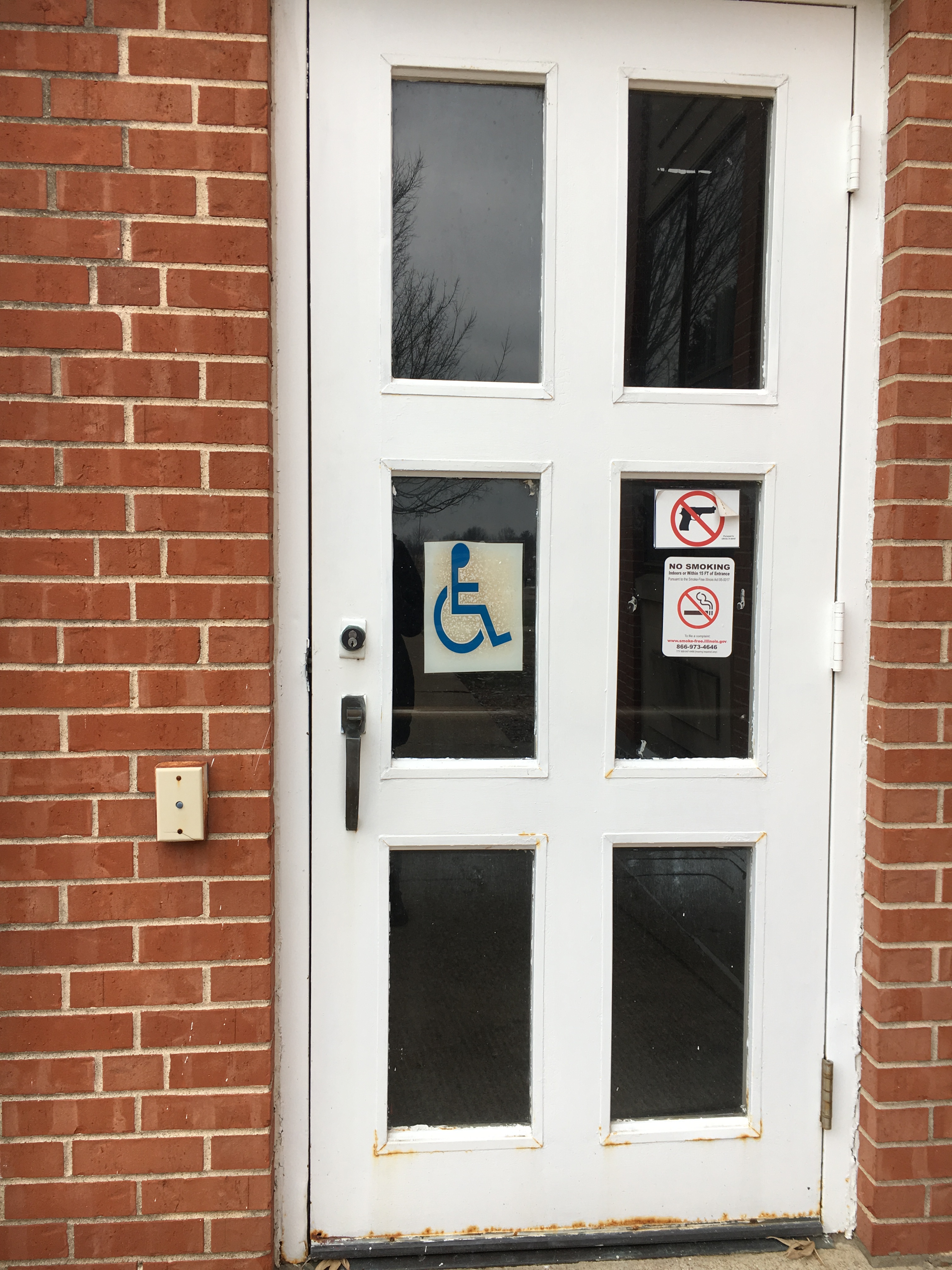Katherine Gemmingen, Head Copyeditor
The following article represents the author’s opinion about a specific topic. The information is backed up and was proof read by our editors. Freedom of speech is part of the First Amendment of the US Constitution and therefore has every writer the right to share his or her opinion. Feel free to email your editors about any issues with the article or leave your comment here.
It’s hard to disagree with the idea of McKendree University boasting a scenic campus. The view of the front lawn from Bothwell Chapel is one that stuns in every season as the trees change. The quad is picturesque, mostly thanks to the meticulous grooming done by the grounds crew. As much as we students may complain about the age of Old Main, there’s something awe-inspiring about the historic nature of so many campus buildings. We are lucky to have such a unique campus.
I should amend that statement: those of us who are able-bodied are lucky to have such a unique campus.
Those of us within the McKendree community who are confronted with physical disabilities, on the other hand, don’t face the same luck. Whether it is a lifelong disability or a temporary one such as a broken leg requiring crutches to get around, the McKendree campus is not handicap-friendly. Maneuvering from building to building is difficult, especially since it is not even possible for disabled students to enter some of the buildings. While there is handicapped parking, it’s not that close to most buildings and the hilly terrain of McKendree does not make it easy to get around. Plus, the limited handicapped parking spots are not always available due to the lots being blocked off for events.
Carnegie’s treacherous stairways are always a student complaint among those who are able-bodied, so imagine what it would be like for someone with a disability who needed to get in the building. I’m sure that the professors on campus would gladly meet in a more accessible place to accommodate the needs of students, but it still is an issue. What if one of the professors whose office is on the second floor of Carnegie were to have a broken leg? Spare office space isn’t exactly common and think of how many of the professor’s belongings would have to be moved.
PAC is the only academic building on campus that is handicap-friendly. There is an elevator, and there is an entrance that has no stairs, facing the quad. As the desks in PAC are not the single-person design with an attached desk, those who are in a wheelchair can actually sit at the tables like any other student. Since PAC is the newest academic building, I assume that McKendree sought to create a more accessible space for those with disabilities.

Most of us don’t realize how many stairs our campus has. We might complain about the stairs when we have to lug laundry upstairs, but we are able to climb them. Almost all of the buildings on campus have stairs at the entrances or within, and often both. Barnett has a ramp at the back entrance, but the only handicap-friendly residence hall is New Res Halls. The building also happens to be the most expensive of housing located directly on campus. While New Res Halls, like PAC, is a newer building designed to be more accommodating, it is almost alarming to think of what things were like before there was such building. The library has an elevator inside, but the only way inside without stairs requires going to a side door and hoping that someone hears when you ring a bell to be let in.

I am not trying to attack McKendree for the design of the campus. Many of the buildings are old and there simply was not a focus on creating accessibility anywhere. The hilly nature of campus that makes even ramps difficult to use is not something McKendree can control, and renovations to increase accessibility are expensive. The bottom line is that we can and should be more accessible. There should be at least an acknowledgement that we can do better as a campus to support people who are not able-bodied.
McKendree University has incredible students, staff, and faculty. Bearcats truly are the greatest, but we are losing out on other people who could join our family. Prospective students or professors may love all the benefits of McKendree’s academic environment, but they cannot choose to come here because the ability to get around campus is too hampered.
Maybe it’s not my place to discuss the accessibility of campus since I am an able-bodied person. I haven’t lived a life that requires me to constantly think of how I will get around. I don’t have a true understanding of how someone with a physical disability feels. I simply want such people to know that they are seen. A physical disability doesn’t make you invisible. I recognize your troubles and hope that McKendree only continues to make campus more accessible.
This is definitely an important issue to raise! Thank you for improving awareness. Let’s keep the conversation going.
Absolutely a topic that needs to be discussed and action taken to improve the accessibility of all buildings on campus.